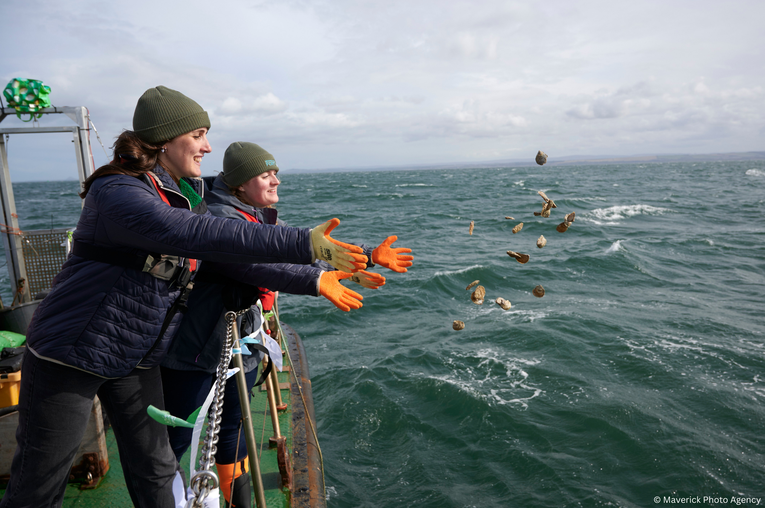
Research & reports
The blue economy and blue finance are becoming key tools for ocean conservation. This page highlights some of our ongoing research that contributes to this work and supports our advocacy for a sustainable blue economy.
Achieving Equity through a Blue Economy
To deliver sustainability, it is crucial that we shape the blue economy in a way that is equitable as well as environmentally and economically responsible. These three pillars are not mutually exclusive but rather depend on each other. This report explores how equity is both a foundation and outcome of a sustainable blue economy.

Credit: Stuart Merchant
An Introduction to Blue Bonds
Blue bonds are a tool available to governments, financial institutions and local authorities to raise finance for ocean-related activities that deliver positive environmental, social and economic outcomes. This report explains what blue bonds are and how they could be used in the UK to unlock the blue economy and show international leadership on blue finance.

Credit: Micheile Henderson on Unsplash
Creating blue jobs through marine restoration
This literature review considers the potential for creating and supporting "blue" jobs, primarily through coastal and marine restoration or conservation. Healthy marine ecosystems are essential to supporting existing industries, but there is also huge untapped potential to create new livelihoods and economic opportunities through the restoration economy.

Credit: Maverick Photo Agency
Ocean-related financial risks and dependencies
This research highlights the ways in which the ocean underpins our economy and financial sector. As ocean health declines, it poses massive risks to financial value in our economy. It makes basic economic and financial sense for financial institutions and governments to understand and mitigate these risks. Doing so would increase financial resilience to environmental change, but would also create a competitive advantage for those that are better prepared and quicker to adapt.

Credit: Stuart Merchant
A socio-economic analysis of a bottom-contact fishing ban in the UK
This research models the value of ecosystem services with the UK's offshore benthic MPA network and how this would improve following a ban on bottom-contact fishing. Comparing this to the costs of implementing the ban, the results suggest a socioeconomic net gain of £3.5 billion for the UK across a 20-year period. In essence, this highlights the value to be gained through removing stressors and allowing ecosystems to recover.

Credit: Anney Lier/Shutterstock
Marine natural capital at risk
This report was originally created in response to the Retained EU Law Bill that threatened to remove key environmental and conservation laws in the UK. More generally, the analysis highlights important areas of economic value provided by our marine natural capital and what we stand to lose if we do not properly manage to threats to the coastal and marine environment.

Credit: Shutterstock | Olga Pedan

